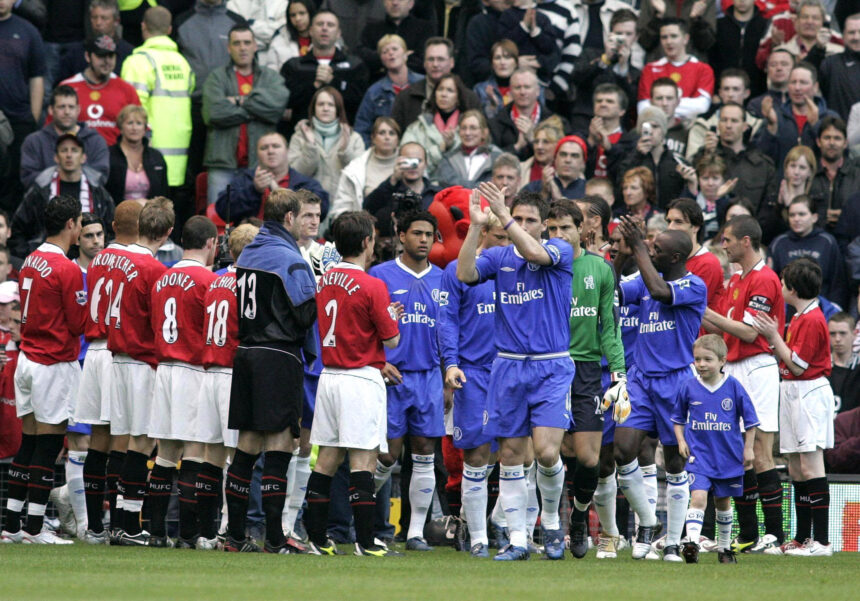Chelsea were seen welcoming Premier League champions Liverpool to Stamford Bridge in an obscure way at the weekend.
For most football fans, ‘a guard of honour’ is a show of respect that is often used to celebrate another team’s achievement across a season.
So what is it, why do we do it, and which sides have done so in the past? FourFourTwo takes a closer look…
What is a guard of honour, exactly?
A guard of honour is a show of respect from one team to another. The receiving side walks through a corridor-like set-up as they enter the pitch, with the opposing team applauding their entrance.
Most of the time performed before a match, Chelsea welcomed Liverpool to Stamford Bridge at the weekend, as they had just been crowned Premier League champions and the mark of respect is seen as a sportsmanlike gesture.
When does the phenomenon come from?
It is understood that the first guard of honour in English football was given during the 1954/55 season. Chelsea had wrapped up the title with one game to go, and in their final league match away against Manchester United, they were given a guard of honour as a sign of good sportsmanship by their opponents.
Reported to have been organised by Sir Matt Busby, the Scotsman was keen on acknowledging Chelsea’s achievement. The Blues captain at the time, Roy Bentley, said that Busby “made sure we got the full red-carpet treatment”.
In Spain, the term is referred to as ‘pasillo’, and both Real Madrid and Barcelona have often refused to acknowledge their rivals’ sporting titles by not performing the show of respect.
Former Real boss Zinedine Zidane famously denied Barcelona a guard of honour in 2018 after claiming the Catalan giants did not do so when they won the Club World Cup. “It is my decision and that is it… Barcelona broke the tradition,” he said.
Is a guard of honour compulsory?
The answer to that very question is no. It is at the discretion of either team, but it does show unsporting behaviour to deny the opposition one on your own patch.
Before a match, the gesture is organised and agreed upon between the two teams. The footballing authorities have no part in the organisation of a guard of honour due to the lack of legislation around it.
The only time that a rule was enforced around it was during the COVID-19 pandemic and due to social distancing guidelines, some teams were kept in ‘bubbles’ together, so the risk was increased, and therefore it was often disregarded on health grounds.
